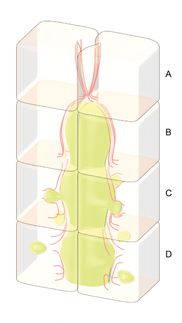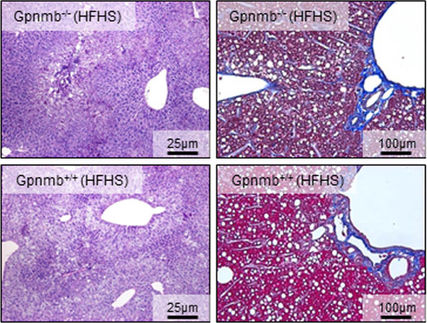Diabetes drug found no better than placebo at treating NAFLD
Advertisement
A diabetes medication described in some studies as an effective treatment for nonalcoholic fatty liver disease (NAFLD) works no better than a placebo, report researchers at University of California San Diego School of Medicine, after conducting the first randomized, double-blind, controlled clinical trial of sitagliptin, an oral antihyperglycemic marketed by Merck & Co. under the name Januvia.
A multidisciplinary team headed by study senior author Rohit Loomba, MD, professor of medicine in the Division of Gastroenterology and director of the NAFLD Translational Research Unit at UC San Diego School of Medicine, found that sitagliptin was not significantly better than a placebo in reducing liver fat, as measured by magnetic resonance imaging-proton density fat fraction (MRI-PDFF) and other technologies.
The team included Claude Sirlin, MD, professor and vice chair (translational research) of radiology at UC San Diego School of Medicine, and Richard Ehman, MD, professor of radiology at Mayo Clinic. The labs, led by Sirlin and Ehman, invented and validated the advanced noninvasive imaging techniques applied in this study.
NAFLD is the accumulation of fat in the livers of people who drink little or no alcohol. It is the leading cause of chronic liver disease in the United States. Roughly one-quarter of Americans -- an estimated 100 million adults and children -- have NAFLD, which can progress to a more serious form called nonalcoholic steatohepatitis, which in turn can develop into cirrhosis, liver cancer and liver failure.
Currently, there are no approved, specific therapies for NAFLD. However, it is commonly associated with diabetes, which has prompted researchers to test diabetes medications, such as metformin, rosiglitazone and liraglutide, as potential treatments.
Sitagliptin is another possibility. In clinical trials conducted in patients with type 2 diabetes, sitagliptin has been shown to be effective in improving glycemic (blood sugar) control, cholesterol, lipoproteins and other health measures compared to placebo.
"But human trials of sitagliptin have been limited to date because they have lacked important tools like a placebo arm and allocation concealment (in which researchers do not know what the next treatment allocation will be, further preventing selection bias in testing)," said Loomba.
In the new study, 50 NAFLD patients with pre-diabetes or early diabetes were randomized into two groups: one received a 100 milligram oral dose of sitagliptin daily for 24 weeks, the other received a placebo. Primary outcome was assessed by changes to liver fat measured by MRI-PDFF, conducted by the Liver Imaging Group in the Department of Radiology at UC San Diego Health.
At end-of-treatment, Loomba and colleagues found no significant differences between sitagliptin and placebo across a range of measures. Neither study group experienced any adverse effects.
While the study did not support earlier findings that sitagliptin was an effective treatment for NAFLD, Loomba said it provided new evidence that clinical trials with patients at higher risk of diabetes do not necessarily need a liver biopsy to be efficiently screened for potential therapeutic agents.
"Biopsies present their own complications, such as possible pain and infection," said Loomba. "MRI-PDFF, and magnetic resonance elastography (a non-invasive imaging technique that measures the stiffness of soft tissues) proved to be accurate, quantitative, and useful over the study duration in measuring the state and progression of disease. These technologies should be further investigated in clinical trials, especially those of longer duration."
Added Sirlin: "These advanced magnetic resonance imaging techniques continue to be refined. Although they remain mainly in the research domain now, we anticipate they will become part of standard clinical care within a few years."
























































